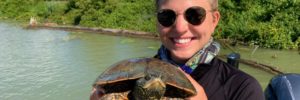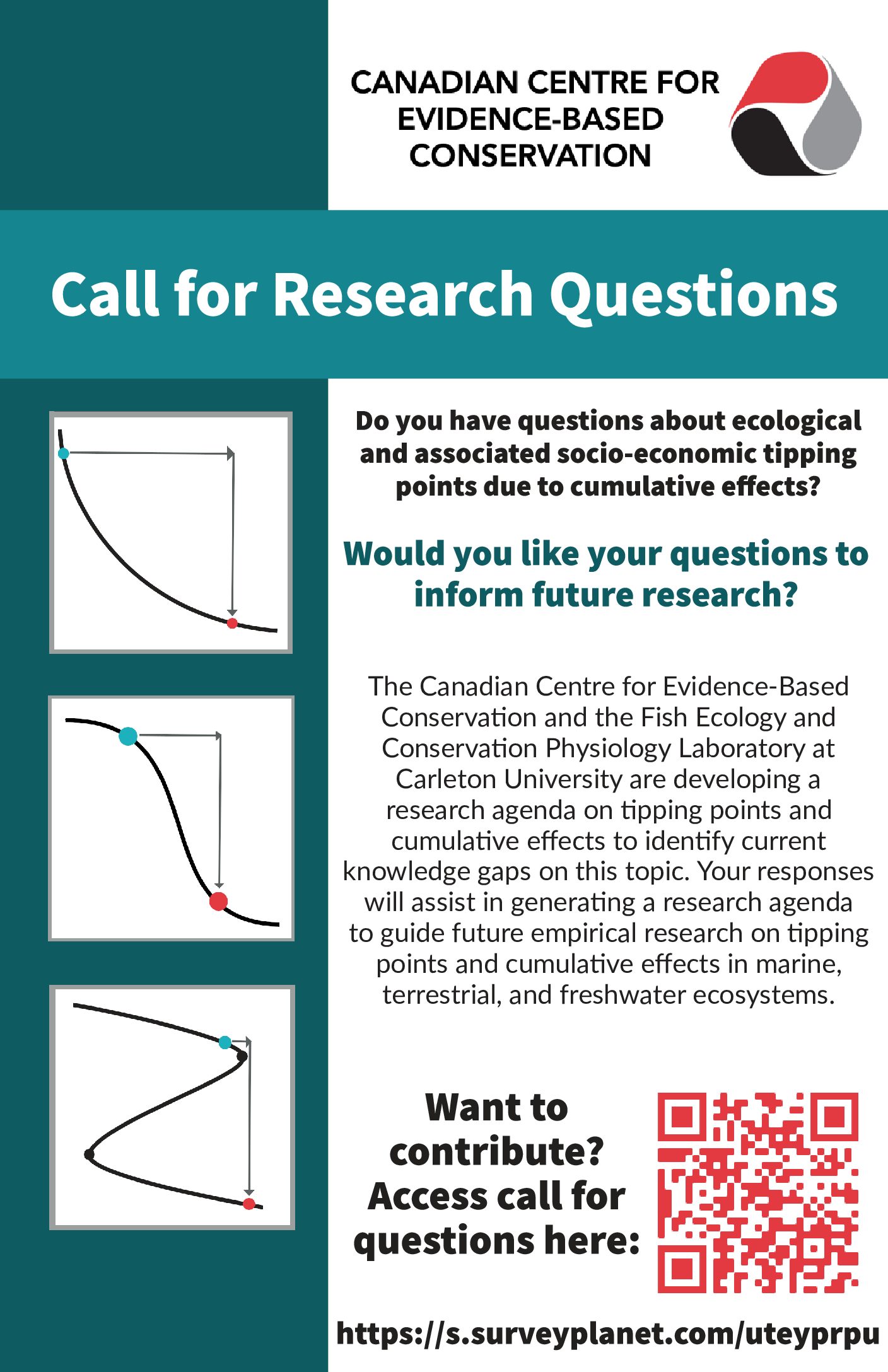We are seeking a Research Associate or Post Doc to join our team at Carleton University. The successful applicant will be affiliated with the Fish Ecology and Conservation Physiology Laboratory (www.fecpl.ca) and the Canadian Centre for Evidence-Based Conservation (https://canadiancebc.com/). About half the time will be focused on supporting various field research and data analysis projects related to the conservation and management of freshwater fish (e.g., hydropower interactions, spatial ecology). The other half of the time will involve participation in evidence synthesis activities related to fish-flow interactions. All projects will involve significant interaction with agency partners and stakeholders. The position is available to be filled as soon as possible, and is expected to be a minimum of 1 year, with the possibility for extension contingent upon performance. The position will be based at Carleton but there is flexibility in time of arrival such that employment could begin immediately from afar.
Selection Criteria: 1. A minimum of an MSc in ecology or environmental science (PhD preferred); 2. Expert knowledge in the ecology of freshwater fish and statistics using the R platform; 3. Experience with evidence synthesis activitiesincluding meta-analysis; 4. Proven ability to interact professionally with a diverse team made up of stakeholders, research scientists, and graduate students; and 5. Work in a timely manner to meet deadlines. Applicants do not need to be a Canadian citizen to apply.
Application details: Applicants should send the following to Dr. Steven Cooke (steven_cooke@carleton.ca), by January 15, 2021: (1) Cover letter, briefly indicating how the applicant meets the selection criteria; 2) Curriculum Vitae; and 3) Contact details for three references. Informal inquiries regarding the positions can be directed to Dr. Cooke. Applications will be considered until the position is filled. Salary will be commensurate with experience.
Carleton University is among Canada’s leading research universities and is committed to fostering diversity within its communities. We welcome those who would contribute to the further diversification of our university including, but not limited to: women; visible minorities; First Nations, Inuit and Métis peoples; persons with disabilities; and persons of any sexual orientation, gender identity and/or expression. Our university understands that career paths vary. Legitimate career interruptions will in no way prejudice the assessment process and their impact will be taken into careful consideration.




